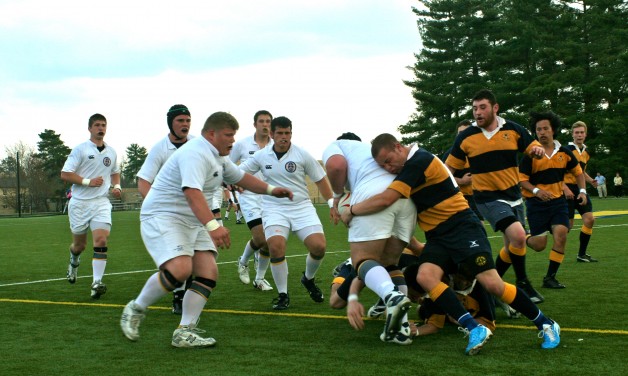Sports shape our lives from our earliest years. It started with games in the backyard with our siblings and neighbors, and during recess with classmates. Along with encouraging us to study hard and learn a musical instrument, our parents signed us up for sports teams. We made friends on our teams. We were taught how to be a good sport, a gracious winner, and to cheer for others. We also learned teamwork, hard work, “It’s not over until it’s over,” and, most famously, “It’s not if you win or lose, but how you play the game that matters.” This saying contains wisdom in a more manageable package for children than the more spiritually-worded equivalents, such as “abandonment to divine providence.” But the message that faithful effort is more important than “success”, as measured by other standards, is similar. If sports analogies are good enough for St. Paul, who, inspired by the Holy Spirit, urged early Christians to run the race of the Christian life so to win the prize (1 Cor. 9:24), then they must be suitable vehicles for conveying spiritual wisdom for people of all ages.
As I reflect on how many commonly used phrases come from sports, the numerous movies based on sports, and the extent to which the annual calendar of sports. I am sometimes tempted, despite my great love for sports, to see the cultural impact of sports as a rival force to the faith, one that seems to beg the label of idolatry. Think of all the sporting events – the World Series, March Madness, college bowl games, the Super Bowl, the World Cup, and a wide variety of playoffs, plus the Olympics every four years – which tend to shape our topics of conversation, our schedules, our celebrations, and our social lives. From the number of homilies that have asked me to consider what would happen if everyone were as pumped up about going to church as they were about the super bowl, I know I’m not alone. The news provides us glimpses of the casualties of obsession in the sports world and its scandals, and we have all experienced the ugliness of those who must win at all costs. Despite this, certain people, who speak of the “evil” of the competitive nature of athletic competition – with a visceral aversion that reminds me of Communists condemning the “destructive evil” of any competition in the market – are tossing out the baby of the good with the bathwater of excess. Iron sharpens iron.
Like Christians in all ages we must build upon and draw out the good that already exists in our surrounding culture, so that the paths to God, which are present in what is common, may be recognized and embraced. Since we are surrounded in our culture by sports – even now for those of us currently discussing and cheering for team USA in the World Cup – how do we engage with sports in a way that leads us closer to God? After all, the prize we are after is not the Stanley Cup, the Lombardi Trophy, or a gold medal. We’re talking about the beatific vision, the enjoyment of God for all eternity in heaven. How can sports help us attain this?
Recognizing the temptations present in sports, St. John Paul II delivered this challenge:
In our time, organized sport sometimes seems conditioned by the logic of profit, of the spectacular, of doping, exasperated rivalry… It is also your task to proclaim and to witness to the humanizing power of the Gospel with regard to the practice of sport, which if lived in accordance with the Christian outlook, becomes a “generative principle” of profound human relations and encourages the building of a more serene and supportive world. (Address to the Italian Sports Centre, 26 June 2004)
Indeed, while certain sports rivalries may leave us skeptical about the promise of sports as encouraging “a more serene world,” sports can bring people together. In addition to the obvious unity built among teammates, even athletes of rival nations have developed respect for one another on the sports field, and this will hopefully help avoid conflict on the battlefield and elsewhere.
St. John Paul II also points out that, beyond providing a context for improving human relations and helpful analogies for explaining the spiritual life, sports can be a real school of virtue. “While playing sports, Christians also find help in developing the cardinal virtues – fortitude, temperance, prudence and justice.” These virtues are necessary for our growth in holiness. Virtues are formed by repeated acts, and sports – like work – provide an opportunity to repeat good acts that build virtue.
Finally, by cooperating with God’s grace in practicing the infused theological virtue of Charity, we can overcome the temptations toward vanity present in sports. Like those who, when recognized for their athletic success, rightly praise God publicly for their gifts, we can give glory to God through sports.
May God help us to grow together, to build virtue, and to give him glory in our sports, so that like Eric Liddell in Chariots of Fire we may say, “When I run, I feel his pleasure.”
✠
Image: Rugby Tackle







